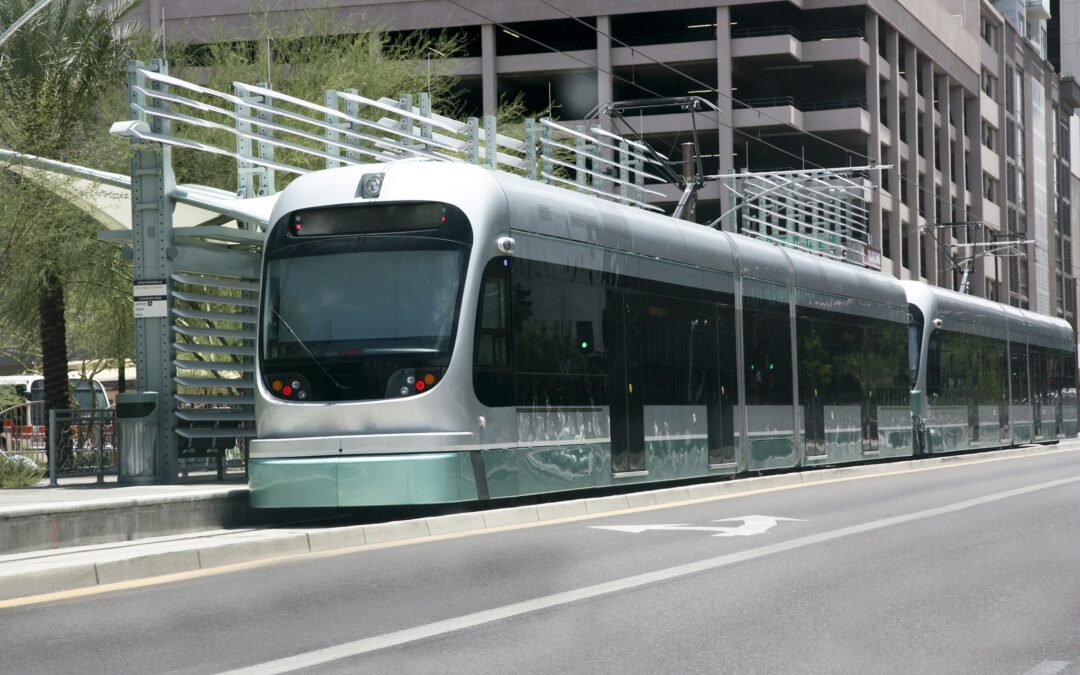Today, the Arizona Free Enterprise Club released a new study evaluating the project investments proposed in the Maricopa County Association of Governments (MAG) “2050 Momentum Plan” funded through a half-cent Proposition 400 sales tax extension.
In his analysis, transportation scholar Randal O’Toole determined that MAG failed to employ the most basic “rational planning process” which requires developing a wide range of alternatives, evaluating those alternatives, and monitoring their implementation. This abdication of the rational planning process is even more confounding post-COVID pandemic which radically changed travel behaviors, and highlights that MAG was more interested in pushing an agenda than devising transportation policies that could respond to real-world problems and withstand objective scrutiny.
O’Toole investigated claims that MAG’s Plan would alleviate congestion, improve air quality, enhance social equity, and improve safety, all of which either fall short, are unsubstantiated with evidence, or in fact worsen. Notably, the study reveals:
-
- The Plan provides no explanation for the steady decline in transit ridership in Maricopa County under the existing regional transportation tax. In particular, transit ridership declined from 2009 to 2019 despite population increasing by over one million residents in the region.
- The Plan fails to recognize the significant shift in travel behavior post COVID-19 (more telecommuting, less rush hour commuting) which further decimated transit ridership, with 2022 boardings being only 55% of what it was in 2019.
- MAG fails to disclose any of the computations used to determine outcomes in the Plan. Key information such as projections for future transit ridership, assumptions used for future changes in traffic congestion and travel behavior, or calculations on how safety will be improved have been withheld from the public.
- The Plan inequitably allocates 40 percent of the tax revenue to transit despite transit carrying less than 1 percent of the region’s passenger miles and zero miles of freight.
- $2.3B in the Plan funds “active transportation” or non-vehicular travel as well as “transportation demand management” projects, all of which are meant to reduce single-occupancy vehicular travel. This includes 21 miles of bicycle lanes on minor arterials and collectors which will most likely reduce capacity and increase congestion for auto traffic.
- The Plan lacks any coherent or substantiated strategy to reduce congestion in the region despite congestion being the predominant concern of county travelers, costing them nearly $1,200 per auto commuter in 2019.
- Less than 2 percent of commuters who earn less than $25,000 a year take transit and a small fraction of the 2.5% of workers in households without a car in the region utilize transit. As such, the Plan neglects to help the vast majority of low-income commuters in the region who can access twice as many jobs in a 20-minute auto drive than in a 60-minute transit ride.
The data in this study should help inform lawmakers’ decisions regarding formulating transportation funding and policy in Maricopa County going forward. “The Prop 400 extension represents the largest piece of transportation policy lawmakers will consider in the next two decades,” stated Scot Mussi, President of the Arizona Free Enterprise Club. “It is critical that it is informed by the data of how people choose to travel in the region, not ideological agendas and pie-in-the-sky utopian ideas being imposed on taxpayers by bureaucrats.”
The full study can be accessed here.
Help Protect Freedom in Arizona by Joining Our Grassroots Network
Arizona needs to have a unified voice promoting economic freedom and prosperity, and the Free Enterprise Club is committed to making that happen. But we can’t do it alone. We need YOU!
Join our FREE Grassroots Action List to stay up to date on the latest battles against big government and how YOU can help influence crucial bills at the Arizona State Legislature.


Recent Comments